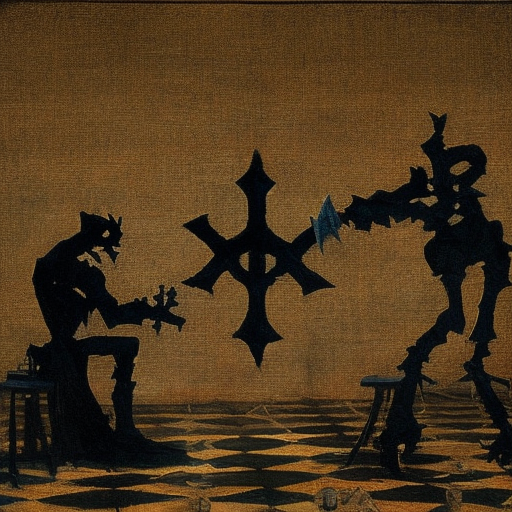The Seventh Seal by Ingmar Bergman
Summary: In the midst of the Black Death, a knight returns from the Crusades and engages in a game of chess with Death, hoping to delay his fate and find meaning in a world consumed by suffering and despair.
Main Cast and Crew:
- Director: Ingmar Bergman
- Writer: Ingmar Bergman
- Key Actors:
- Max von Sydow as Antonius Block
- Gunnar Björnstrand as Jöns
- Bengt Ekerot as Death
- Nils Poppe as Jof
- Bibi Andersson as Mia
- Music Director: Erik Nordgren
- Director of Photography: Gunnar Fischer
- Producers: Allan Ekelund, Carl Anders Dymling
Plot:
Set in 14th century Sweden during the Black Death, “The Seventh Seal” follows Antonius Block, a disillusioned knight who returns from the Crusades to find his homeland ravaged by the plague. As he contemplates the existence of God and the meaning of life, he encounters Death personified and challenges him to a game of chess, hoping to postpone his own demise.
Throughout their game, Block and Death encounter a colorful cast of characters, including Jöns, Block’s sardonic squire, and Jof, a gentle and innocent traveling performer. Together, they navigate a world plagued by fear, superstition, and religious fanaticism. Block’s encounters with a witch-burning procession, a self-flagellating religious sect, and a group of flagellants highlight the absurdity and cruelty of humanity’s response to suffering.
As the game of chess unfolds, Block wrestles with his own mortality and the silence of God. He seeks answers from a group of traveling actors, who provide a temporary respite from the darkness. However, the inevitability of death looms over them all, and Block must confront his fears and make peace with his impending end.
Themes and Motifs:
“The Seventh Seal” explores profound themes such as the existence of God, the nature of faith, and the human condition in the face of mortality. Bergman uses the game of chess as a metaphor for the eternal struggle between life and death, reason and faith. The film delves into the existential crisis faced by its characters, examining their search for meaning and their desperate attempts to find solace in a chaotic and uncertain world.
Religious symbolism and imagery are prevalent throughout the film, with the stark black and white cinematography emphasizing the stark contrast between light and darkness, good and evil. Bergman challenges traditional religious beliefs, questioning the silence of God in the face of human suffering and the hypocrisy of religious institutions.
Reception and Legacy:
Upon its release in 1957, “The Seventh Seal” garnered critical acclaim and established Ingmar Bergman as one of the most influential filmmakers of his time. The film’s philosophical depth, stunning visuals, and powerful performances captivated audiences and critics alike. It received numerous awards and nominations, including the Special Jury Prize at the 1957 Cannes Film Festival.
“The Seventh Seal” has had a lasting impact on cinema, influencing countless filmmakers and becoming a touchstone for existentialist cinema. Its exploration of life’s biggest questions and its poetic and introspective approach continue to resonate with audiences today.
Recommendation:
“The Seventh Seal” is a masterpiece of world cinema that delves into profound philosophical questions while offering a visually stunning and thought-provoking experience. It is a must-watch for those who appreciate introspective and challenging films that explore the human condition.
Memorable Quote:
“Who are you?” – Antonius Block
“I am Death.” – Death
“Have you come for me?” – Antonius Block
“I have long walked by your side.” – Death












